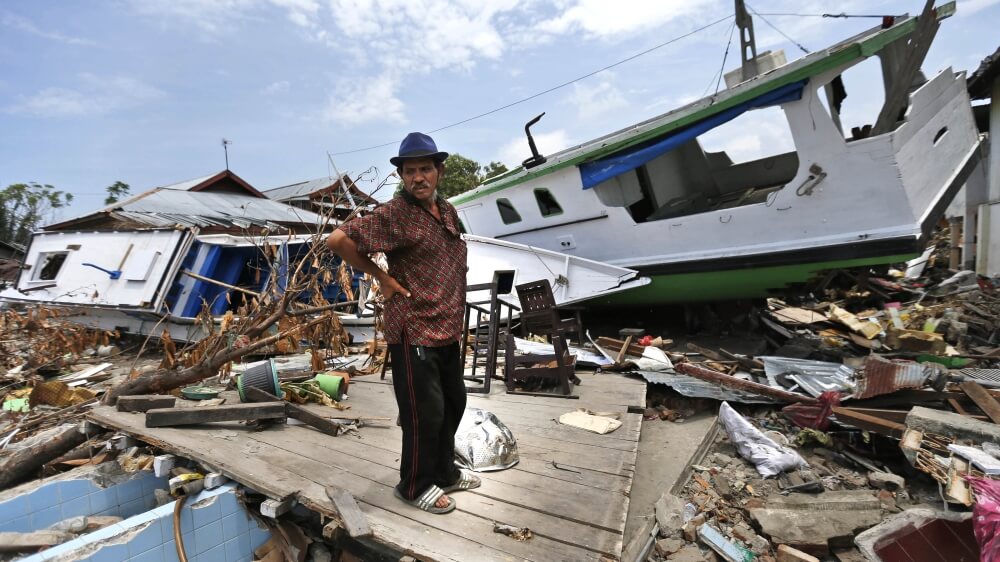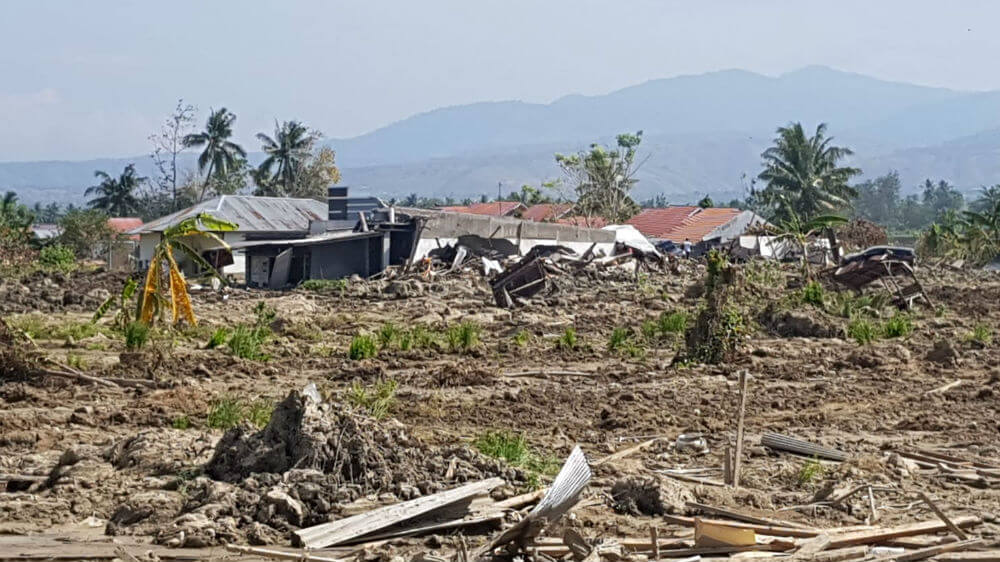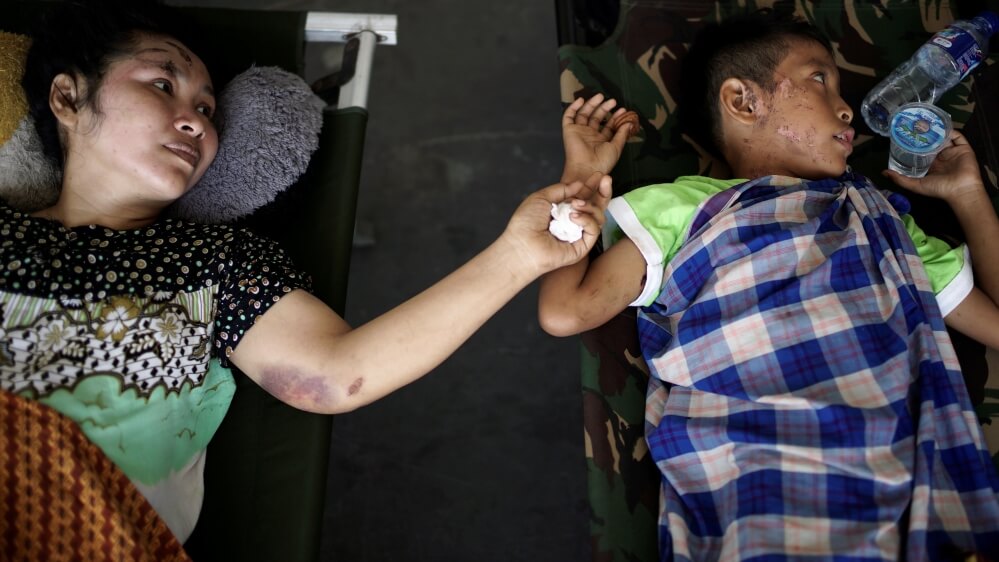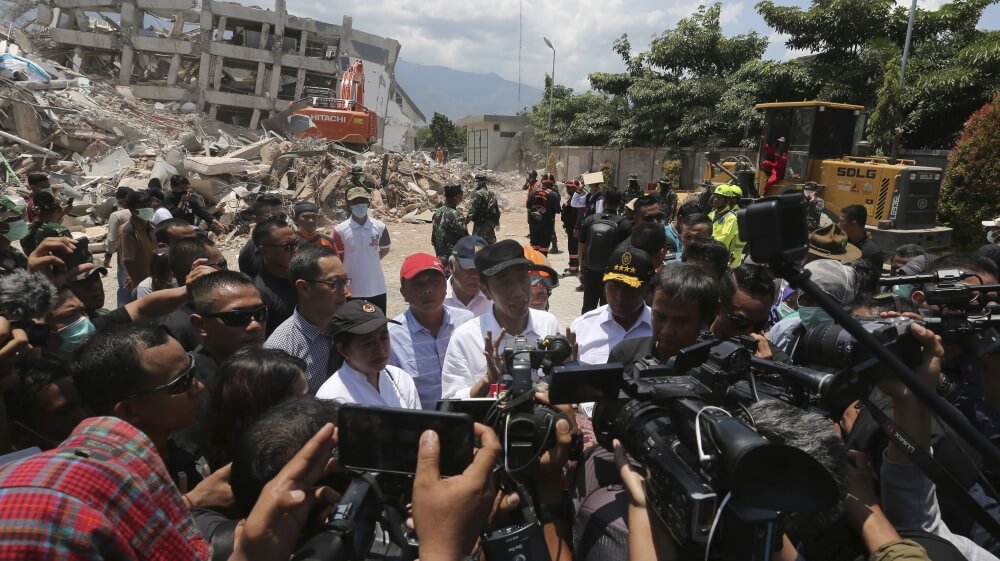
The death toll in Indonesia's recent twin quake-tsunami disaster has now climbed above 1,400.
Sutopo Purwo Nugroho, the spokesman for Indonesia's disaster agency spokesperson, said the official death toll stood at 1,407 on October 3rd, 2018, with thousands injured and over 70,000 displaced from their houses.
Food, water, medicine, and fuel was still slow to reach the hardest-hit areas out of the city of Palu on the island of Sulawesi, and the United Nations has warned of "vast" unmet needs there.

The Indonesian army arrested a man for stealing motorcycle spare parts and confiscated the sword he was armed with [Ted Regencia/Al Jazeera]

Volunteers continue to recover bodies on Thursday in the Petobo area of Palu [Ted Regencia/Al Jazeera]

Denny Liem, 41 years old, owner of the Roa Roa Hotel, said among 30 people believed trapped is a Korean member of a paragliding team [Ted Regencia/Al Jazeera]

Over 66,000 homes were destroyed or damaged by the magnitude-7.5 quake and the tsunami it spawned on Friday [Ted Regencia/Al Jazeera]
Rescue efforts have been hampered due to a lack of heavy machinery, severed transport links and the scale of the damage.
Approximately 200,000 people need urgent help, the UN's humanitarian office said, among them, tens of thousands of kids, with an estimated 66,000 houses destroyed and or damaged by the 7.5 magnitude earthquake and the tsunami it spawned on September 28th.

Children eat outside their tent for safety reasons after the earthquake in Biromaru village in Sigi [Beawiharta/Reuters]

Women line up to buy rationed cooking gas in Palu. [Ted Regencia/Al Jazeera]

Survivors in Donggala district are desperate for food and water, say aid workers [Athit Perawongmetha/ Reuters]

Soputan spewed a column of ash more than 6000m into the air [Handout/ Indonesia's national disaster agency/AFP]
Climbing over reeking piles of wet food and debris, a crowd October 3d searched a wrecked warehouse for anything that they could salvage: cans of condensed milk, rice, candy, soft drinks, and painkillers.
According to aljazeera.com, airplanes bringing in all kinds of supplies, humanitarian workers as well as volunteers from various countries continued to arrive at the Palu airport late on the same day.
Residents in one Palu neighborhood which was devastated by the twin quake-tsunami disaster cheered in excitement when a truck laden with supplies came into their region.
"I'm so happy," 63-year-old Heruwanto told the Associated Press news agency, while he was holding onto a box of ramen noodles.
"I really haven't eaten for three days," he added.
Elsewhere in the city, devastated people searched for anything edible in the shell of a warehouse that tsunami waves pounded.
Andi Arif told AP he was searching for some different medicine and food for his kids.
"There is some aid, but we never got it," he said, talking about the government aid.
Over 25 countries have offered assistance after Indonesian President Joko Widodo appealed for international help. Little of that, though, has actually arrived at the disaster area.

Victims of earthquake and tsunami are being evacuated from Palu airport [Athit Perawongmetha]

Emergency supplies are yet to reach some of the hardest-hit areas [Athit Perawongmetha/Reuters]

Joko Widodo made his second visit to the disaster zone on Wednesday [Tatan Syuflana/AP]

The wreckage of the Ponulele Bridge in Palu. [Ted Regencia/Al Jazeera]
An aircraft carrying more than 12,000 liters of fuel arrived. Trucks filled with food were also on the way with police escorts to guard against looters.
Several gas stations were inoperable either due to quake damage or from people stealing fuel, as national disaster agency representative Sutopo Purwo Nugroho said in Jakarta.
Indonesian military chief Hadi Tjahyanto said that one-armed soldier and one armed police officer would be placed on each aid truck and soldiers would be sent to secure markets, the airport and fuel depots to maintain order.
Australia announced it would send fifty medical professionals as part of a $3.6m aid package. The US and China are among other countries which have offered assistance.
The death toll has climbed to 1,407 people, according to Indonesia's disaster agency.
Sutopo Purwo Nugroho, the spokesperson for the national disaster agency, said that 519 bodies had been buried as different kinds of rescue workers strived to locate survivors around the ravaged city of Palu.
Underlining the growing sense of urgency and need, Indonesian President Joko Widodo made his second visit to the disaster zone, putting on an orange hard hat to talk to rescue workers at a collapsed Palu hotel.
The president requested reinforcements in the ongoing search for victims after he inspected what he called a rescue effort at the Hotel Roa Roa. There, he said thirty people lay buried in the ruins. He said that they'd continue this process so that all the victims can be retrieved.
Rescuers were focusing on half a dozen critical sites around Palu - the Hotel Roa-Roa where up to 60 people are still thought to be buried, a restaurant, a shopping mall, and the Balaroa area where the insane force of the earthquake turned the earth temporarily to mush.

Out of Palu's Mutiara Al Jufri Airport, hundreds of people were camped out, some receiving medical treatment, others awaiting a chance to escape.
















COMMENTS